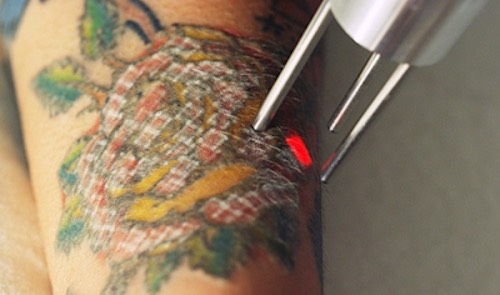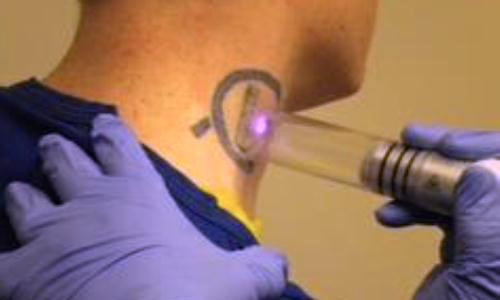
Once considered permanent, tattoos are now removable through laser treatments, which is good news for those who no longer want to be associated with gangs or lifestyles from their past.
For the last four years, hundreds of inmates in the custody of the Los Angeles County Sheriff’s Department have taken advantage of the Tattoo Removal Service, a joint program of the Inmate Services Bureau, the Medical Services Bureau, and Homeboy Industries.
UPDATE: City Police Have Brought 109 Addicts to Rehab, Instead of Jail
The highly successful service uses advanced technology to benefit inmates who commit to bettering themselves while in custody so they can re-enter their communities with a truly “clean slate.”
Inmates regret having gotten tattoos for varying reasons. Some acquired their first tattoo as young as eleven years old, before they could make a wise decision. For others, a tattoo not done by a skilled professional has produced an unsightly or distorted image. And almost all inmates have experienced the negative social stigma attached to some tattoos—especially when they are offensive or prominently displayed on the face, neck, or hands.
Perhaps most importantly, many employers adhere to stated or unstated no-tattoo policies that can limit a former inmate’s job opportunities.
WATCH: Suspect Weeps When Judge Remembers Him as “Nicest Kid in School” –It Changed His Life
The city’s Tattoo Removal Service is overseen by trained medical personnel who use a medical-grade laser that breaks down the tattoo ink. If the removal process takes longer than the inmate’s sentence, officials coordinate with Homeboy Industries to complete the removal at no cost to the individual.
2,248 inmates have benefited, so far –and, at no private or public cost.
The Inmate Welfare Fund – which pays for essential health, welfare and educational needs of the inmates and is funded by “collect only” pay phones, inmate vending machines, barber shop, and hobby-craft sales– fully pays for all the tattoo removal expenditures, incurring no additional outlay from the Sheriff’s Department or the public.
CHECK OUT: 14 Years After Decriminalizing Heroin, Here’s What Portugal Looks Like
Having received overwhelmingly positive feedback from participants, the tattoo clinic, along with the associated academic, vocational and life-skills training, stands as one of the Sheriff Department’s most powerful means of helping inmates secure employment, gain community acceptance, and reducing recidivism.




















